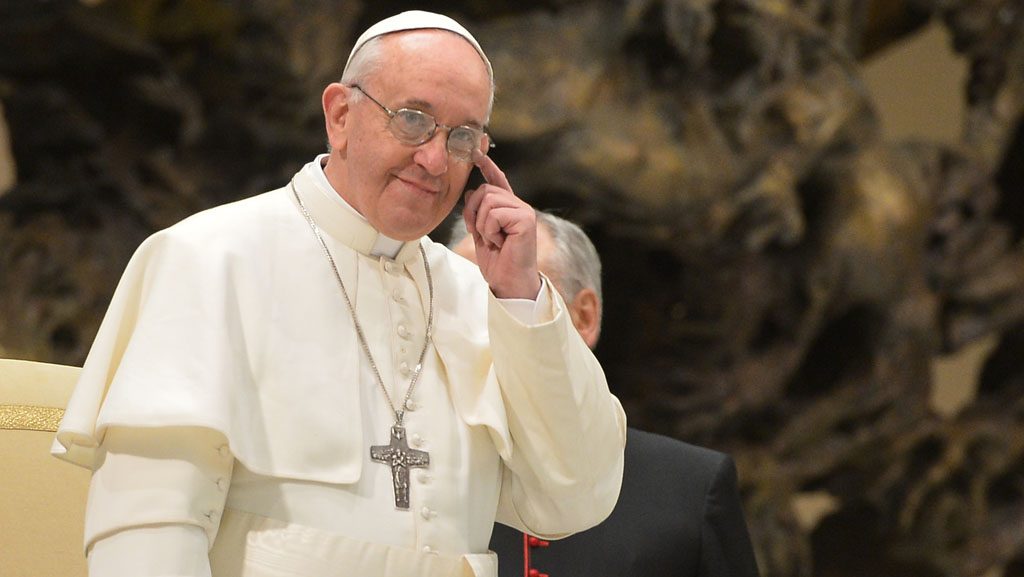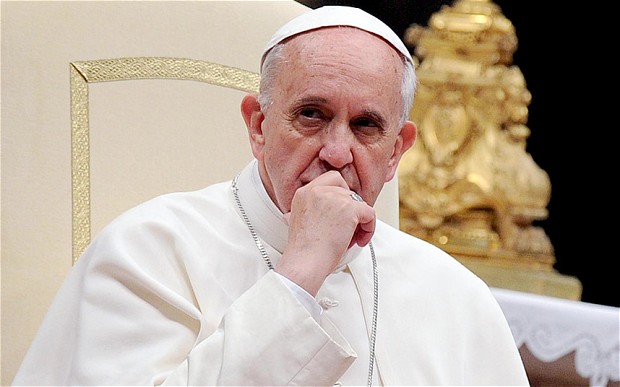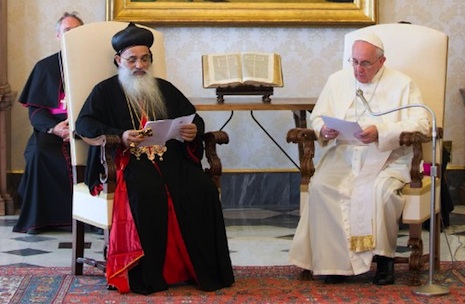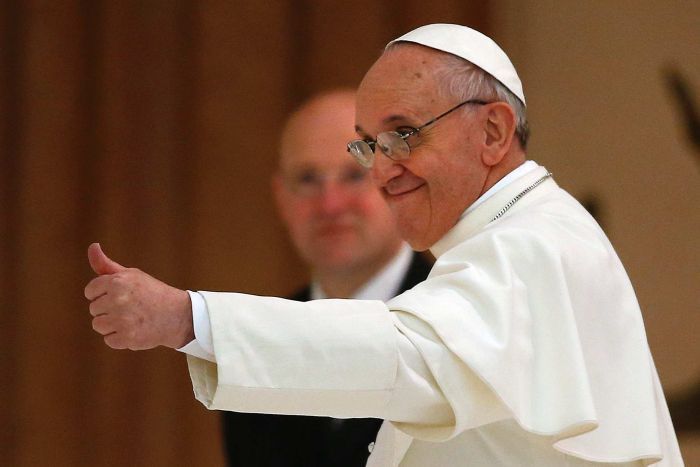
Christians must never forget that the centre of their life is Jesus Christ. That was the message of Pope Francis at Mass this morning at the Casa Santa Marta. The Pope emphasised that we must overcome the temptation to be “Christians without Jesus” or Christians that seek only devotions, without Jesus.
Pope Francis dedicated his whole homily to the centrality of Jesus in the life of the Christian. “Jesus,” he said, “is the centre. Jesus is the Lord.” And yet, he maintained, this is not always understood well, “it is not easily understood.” Jesus is not a lord of this or that, but is “the Lord, the only Lord.” He is the centre that “regenerates us, grounds us”: this is the Lord, “the centre.” The Pharisees of today’s Gospel, Pope Francis noted, “make so many commandments the centre of their religiosity.” Even today, “if Jesus is not at the centre, there will be many other things,” so that “we meet many Christians without Christ, without Jesus:
“For example, those who have the sickness of the Pharisees and are Christians that put their faith, their religiosity in so many commandments, so many. ‘Ah, I have to do this, I have to do this, I have to do this. Christians of this attitude . . . ‘But why do you do this?’ – ‘No, it must be done!’ – ‘But why?’ – ‘Ah, I don’t know, but it must be done.’ And Jesus – where is He? A commandment is valid if it comes from Jesus: I do this because the Lord wants me to do this. But if I am a Christian without Christ, I do this and I don’t know why I have to do it.”
There are, he added, “other Christians without Christ: those who only seek devotions . . . But Jesus is not there. If your devotions bring you to Christ, that works. But if you remain there, something’s wrong.” There’s another kind of Christian without Christ, he continued, “those who seek things that are a little uncommon, a little special, that go back to private revelations,” while the Revelation concluded with the New Testament. Pope Francis warned about the desire of these Christians to go to “a spectacle of revelation, to hear new things.” But, the Pope exhorted them, “take the Gospel!”:
“‘But Father, what is the rule for being a Christian with Christ, and not becoming a Christian without Christ. What is the sign of a person that is a Christian with Christ?’ The rule is simple: only that which brings you to Jesus is valid, and only that is valid that comes from Jesus. Jesus is the centre, the Lord, as He Himself says. Does this bring you to Jesus? Go ahead. Does this commandment, this attitude, come from Jesus? Go ahead. But if it doesn’t bring you to Jesus, and if it doesn’t come from Jesus, but . . . if you don’t know, it’s a bit dangerous.”
And again the Pope asks, “What is the sign that I am a Christian with Jesus?” The sign, he said, is simple. It is the sign of the one born blind that prostrated himself before Jesus to adore Him:
“But if you aren’t able to adore Jesus, you’re missing something. A rule, a sign. The sign is: I am a good Christian, I am on the path of a good Christian if I do that which comes from Jesus and if I do that which leads me to Jesus, because He is the centre. The sign is: I am capable of adoring, the adoration. This prayer of adoration of Jesus. The Lord makes us understand that He alone is the Lord, the unique Lord. And He gives us, too, the grace of loving Him so much, of following Him, of going along the path that He has shown us.”


















